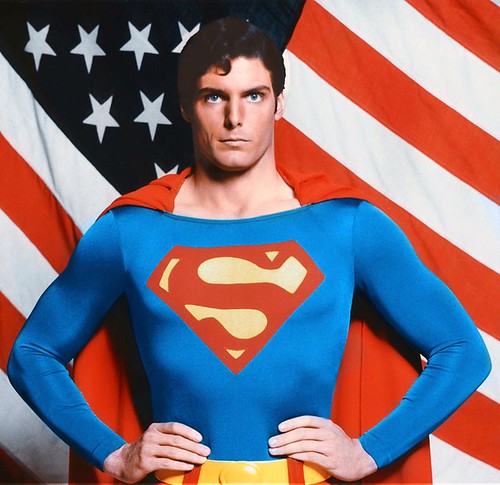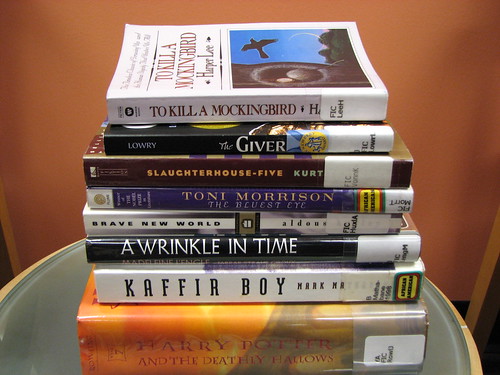Leviathan Wakes by James A. Corey
/ If you like Space Opera, this will be the book for you: Leviathan Wakes, by author James A. Corey (a collaboration between Daniel Abraham and Ty Franck). Spanning much of our solar system, it's an epic story in a reasonably near future, with an excellently conceived of environment and a fun story that is both action packed and thoughtful. Leviathan Wakes is the embodiment of what good space opera should be: there's a bit of a scientific background that helps to inform the plot, but the focus of this story is on the characters and major events that blast the story forward.
If you like Space Opera, this will be the book for you: Leviathan Wakes, by author James A. Corey (a collaboration between Daniel Abraham and Ty Franck). Spanning much of our solar system, it's an epic story in a reasonably near future, with an excellently conceived of environment and a fun story that is both action packed and thoughtful. Leviathan Wakes is the embodiment of what good space opera should be: there's a bit of a scientific background that helps to inform the plot, but the focus of this story is on the characters and major events that blast the story forward.
As such, Leviathan Wakes works on a number of levels. Throughout the story, the influence of two authors who have been identified strongly with the fantasy genre is clear in the text: there is a wide, sweeping and epic sense to the world that's been constructed here, and the fingerprints feel very much like there's experience with fantasy here. This ranges from the somewhat tired: some of the characters feel almost a little too forced with the world-weary or tough guy things that some modern fantasy novels seem to be saddled with, to the good: the world building and scale of the storyline, which seems to grow and grow.
In a large sense, a space opera story has far more in common with a fantasy novel, as opposed to a straight up science fiction novel, although Leviathan Wakes feels at times like it's caught between the two, for better and worse: for most of the story, it's evenly balanced between the two, and it works very well from that standpoint: the science helps to inform the rules of The Expanse, while the fantastic elements get taken over by the story and its own momentum. In a recent blog post somewhere, someone made the comment that Orbit was betting that a recent offer of a free ebook copy of Leviathan Wakes paired with a copy of Abraham's book The Dragon's Path would pull in a crossover audience from the fantasy fans, and after reading through this, I can easily believe it.
Leviathan Wakes stands out amongst a lot of books for the world-building efforts that have been put together for this story. In this far future, humanity hasn't quite made it out to the stars, but they've made it out into the neighborhood: Earth's Moon, Mars, (Venus had abortive attempts), the asteroid belt, the moons of Jupiter and Saturn, and as far out as some of the moons of Neptune, all have some element of human habitation, with a wonderfully rich human society living and working within our solar system. Self-sustaining governments have grown up with their own cultures, and the book really shines by adding in an enormous depth to the environment in which the story is placed: it helps turn what would be a fairly average novel into something that really stuck in my head, and makes me biting at the bit for the next installments in the projected three book series.
The story that's settled in the world is one that works well: the destruction of a ship travelling through the solar system on a transit run, when they come across an abandoned ship, The Scopuli. When their ship is destroyed, a wave of outrage runs across the solar system, angering two sides of a brewing conflict, and pitting the Belters, Earthers and Martians against one another. At the same time, a cop is tasked with tracking down a girl for a family, bringing him on another track towards The Scopuli, and soon, the main characters are caught between revolution and corporate interests. The story really surprised me at points as the authors angled things in unexpected ways, and they manage to pack quite a bit into the pages. The book falls roughly into three parts (and I thought that it could have transitioned a bit better between each of the acts), that bring the story higher and higher to the end, and the entire thing is really a rush from beginning to end.
If there's any fault with the book, it's in the execution, where it felt like some of the book could have been trimmed down from its lengthily page count (almost 600 pages in my copy), and at some points, it feels as if there's parts that are just far too wordy, with excess exposition and explanation that didn't necessarily need to be present.
This book is one that I'll predict will divide audiences along a science fiction / space opera divide. The science here exists mainly in the background: there's some plausible elements here, as well as the usual grain of salt, as ships careen back and forth between the Belt and various planets, with some token explanations, but it's not the central focus of the story. People will fall on either side, either advocating for a stronger or more realistic setting for the stories, and people who might argue that it's not necessarily all that important to the story and that it should be enjoyed on its own merits. Coming to the end, I think that the latter argument holds up a bit better, but I'm happy to see that the authors have given a bit to support it in some measure of reality.
At the end of the day, Leviathan Wakes was a book that I really enjoyed: there wasn't a moment that I found myself really bored, and few occasions wondering why the book was drifting aimlessly: we've got a fun space opera story that's created one hell of a world to play in, with this story thundering out the gates, all guns ablaze, while touching on everything from military science fiction to romantic entanglements, and I'm already awaiting to see what happens next in The Expanse.

 Last year, finally picked up my first China Miéville book, The City and The City, and was blown away by the story and world building that set the story in such an interesting location. At the same time, I’d picked up his latest book, Kraken, which had promptly been picked up by my girlfriend, who’s urged me to read it since. Kraken turns out to have been a very different book from Miéville’s prior work, and was one that sucked me in with his elegant prose and fascinating take on an alternate, hidden London.
Last year, finally picked up my first China Miéville book, The City and The City, and was blown away by the story and world building that set the story in such an interesting location. At the same time, I’d picked up his latest book, Kraken, which had promptly been picked up by my girlfriend, who’s urged me to read it since. Kraken turns out to have been a very different book from Miéville’s prior work, and was one that sucked me in with his elegant prose and fascinating take on an alternate, hidden London.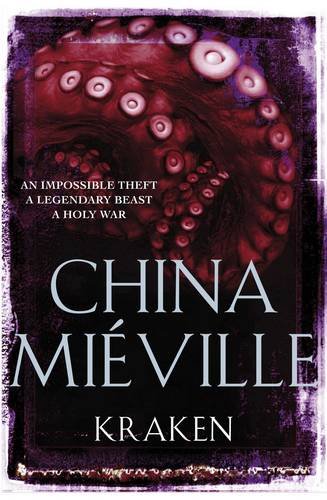




 With the new year upon us, I've wrapped up my list of what I've read all of last year, and taken the books that I've got sitting on a shelf waiting to read for the next 365 days. I've got no illusions that I'll get through this entire list in one year - there's certainly books that I had planned to read in 2010 that I never got around to, but it's a starting point, to be sure.
With the new year upon us, I've wrapped up my list of what I've read all of last year, and taken the books that I've got sitting on a shelf waiting to read for the next 365 days. I've got no illusions that I'll get through this entire list in one year - there's certainly books that I had planned to read in 2010 that I never got around to, but it's a starting point, to be sure.
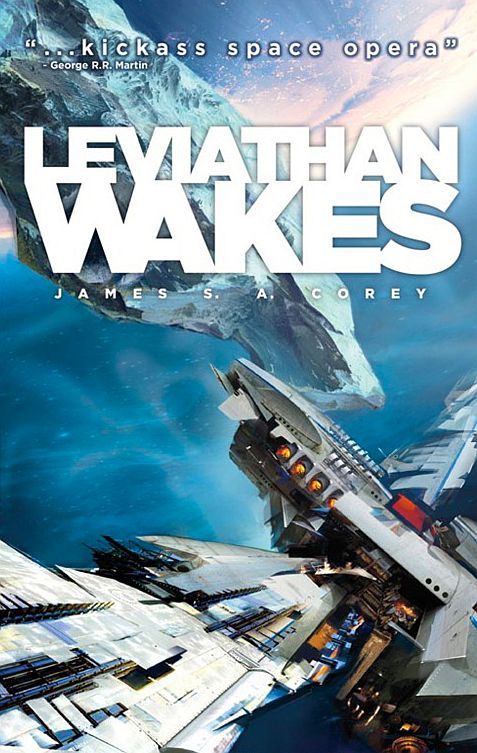 As 2010 closes out, there's the inevitable looking forward to the new year. There's already a small, but growing list of books that are coming out that has been percolating in the back of my head. Some of these are authors that I've never read before, some are ones from familiar people, but all looked interesting to me. Here's what I've got thus far:
As 2010 closes out, there's the inevitable looking forward to the new year. There's already a small, but growing list of books that are coming out that has been percolating in the back of my head. Some of these are authors that I've never read before, some are ones from familiar people, but all looked interesting to me. Here's what I've got thus far:
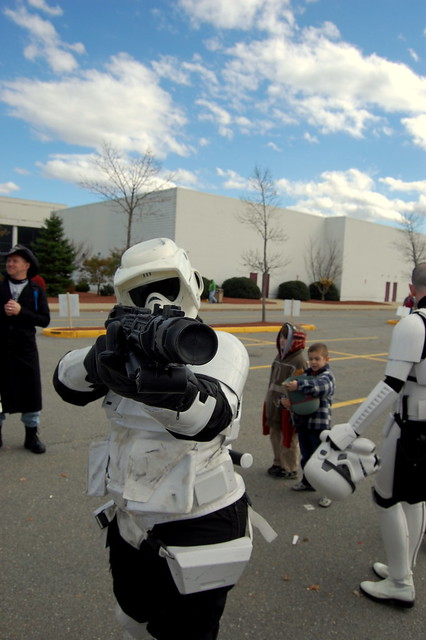 Heather, from the NEG
Heather, from the NEG Marie, from the Canadian Garrison
Marie, from the Canadian Garrison

 This past weekend was the Wizard World Boston comic convention, held at the Hynes Convention Center in downtown Boston, something that the New England Garrison has been planning for almost a year now. This has been quite the year for conventions for the group. We were at the Boston and Granite City Comic Cons earlier this year, then Celebration 5, and now this one, with SupermegaFest coming up.
This past weekend was the Wizard World Boston comic convention, held at the Hynes Convention Center in downtown Boston, something that the New England Garrison has been planning for almost a year now. This has been quite the year for conventions for the group. We were at the Boston and Granite City Comic Cons earlier this year, then Celebration 5, and now this one, with SupermegaFest coming up.

